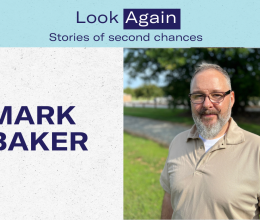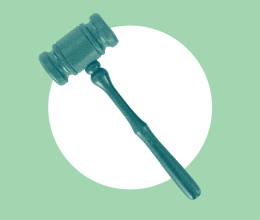ACLU claims that restrictions on head and facial hair violates prisoners’ religious rights
Richmond-U.S. District Court Judge Richard Williams ruled today that a lawsuit challenging the Virginia Department of Corrections’ requirement that inmates keep their hair short and beards shaven can proceed. The ACLU, which represents Muslim and Rastafarian inmates, maintains that DOC’s policy violates the religious rights of prisoners whose faiths mandate hair on their heads or faces.
The DOC policy, which was enacted in 1999, requires all inmates to have their hair “cut above the shirt collar and around the ears” and to be no more than one inch in “thickness/depth.” All inmates must be clean shaven, except for mustaches, unless they can obtain a medical exception. The policy contains no religious exemptions, meaning many incarcerated Muslims, Native Americans, and Rastafarians are forced to abandon central tenets of their religious beliefs or face punishment.
The ACLU lawsuit claims that DOC’s policy violates the Religious Land Use and Institutionalized Persons Act, or RLUIPA, which was passed by Congress in 2000 to protect the right of persons to practice their faiths despite incarceration.
Today’s hearing was a response to DOC’s request that the case be dismissed because RLUIPA is an unconstitutional law. Judge Williams did not rule one way or the other on the constitutionality of RLUIPA, but said he wanted to proceed with the challenge to the grooming policy and will decide later if he needs to address the constitutionality of RLUIPA.
The case, originally filed in February 2003, was put on hold while the constitutionality of RLUIPA was challenged in a separate lawsuit. In December 2003, however, the Fourth Circuit Court of Appeals held that RLUIPA did not violate the First Amendment mandate for separation of church and state, thus allowing the current case to proceed. In the case heard today, DOC is arguing that RLUIPA is unconstitutional on other grounds.
Federal courts in recent years have overwhelmingly concluded that RLUIPA is constitutional.
ACLU of Virginia legal director Rebecca K. Glenberg and Stephen Rosenfield of Charlottesville represent five Virginia inmates who were punished for not complying with the policy or who were forced to comply with it to avoid punishment. Two of the inmates are Rastafarians whose religious beliefs oblige them to allow their hair to grow, and three are Muslims who are prohibited from cutting their beards.
Contacts: Kent Willis, Executive Director, ACLU of Virginia, 804-644-8022 Rebecca Glenberg, Esq., Legal Director, ACLU of Virginia, 804-644-8022 Stephen Rosenfield, Esq., Charlottesville, Virginia, 434-984-0300/99




